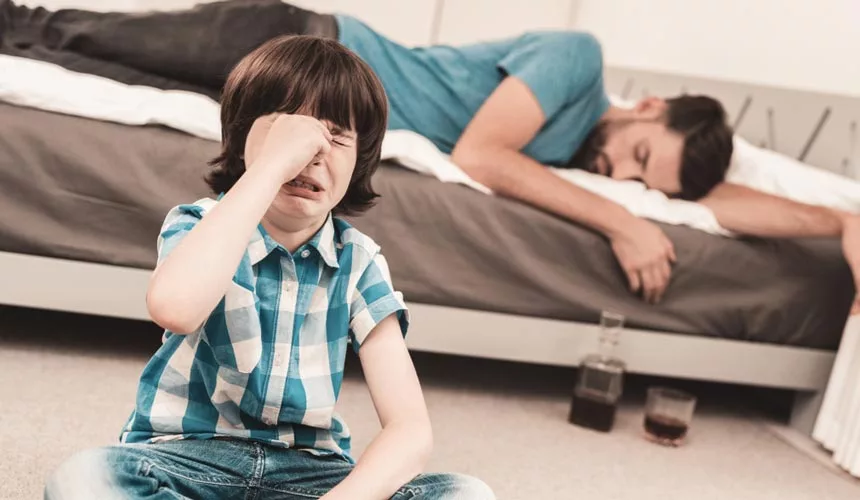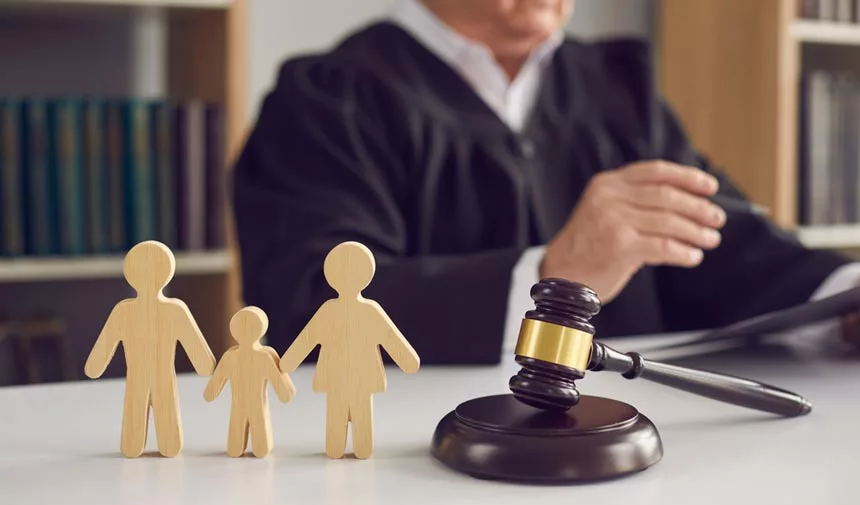Substance Abuse and Losing Custody of Your Child
Substance abuse and child custody can be very contentious issues for parents who are embroiled in a bitter divorce or custody dispute. Substance abuse can have a profound impact on children, and it can significantly affect a parent’s ability to provide a safe, healthy environment for their family.
When it comes to determining a child custody arrangement, parental substance abuse is an important factor to consider. Courts will typically take into account the nature and severity of the substance abuse, the degree of risk that the children may be exposed to, and the degree to which the parent is able to provide a safe and secure environment for their children.
If a court determines that a parent’s substance abuse is putting the children at risk, they may consider awarding primary or sole custody to the other parent. The court may also impose restrictions on the other parent’s visitation or require that visits take place in a supervised setting. Working to regain custody after drug abuse and/or addiction can be difficult, but it is achievable.
The court may also require the parent to complete a drug or alcohol addiction treatment program or other recovery services. It is important to note that substance abuse does not necessarily mean that a parent will automatically be denied custody.
In some cases, a parent’s commitment to recovery and ability to provide a safe and secure environment for their children may be enough for the court to award custody. This is especially true if the parent has taken the necessary steps to get help, such as entering a treatment program, seeking counseling, and attending support groups.
If you have lost custody of your child or children due to drug addiction, it is important not to lose hope. Keep reading to learn about how you can win back your parental rights by getting professional treatment.
How Does Drug Abuse Affect Parenting?

Drug abuse can have a devastating effect on parenting. It can lead to a parent being unable to provide proper care for their child and even put them in danger. It can also lead to a range of psychological and behavioral issues in the child, including depression, anxiety, and aggression.
When a parent is abusing drugs, they are more likely to be neglectful or even abusive to the child. Even unintentional child abuse can lead to a range of problems, such as the child not receiving proper nutrition, medical care, and education. It can also interfere with the parent’s ability to provide emotional support and guidance.
A parent’s drug use can also have a negative effect on their relationship with the child. The child may feel neglected or unloved, and this can lead to feelings of guilt and anger. They may also feel frightened or scared of their parent(s) and this can lead to a lack of trust.
When a parent is using drugs, they are less likely to be able to provide a safe and secure environment for their child. This can lead to child welfare issues, including their feeling unsafe and insecure, and it can also lead to them developing a range of behavioral problems.
Whether struggling with drug or alcohol abuse, this addiction can create problems with a child’s custody arrangements. If this behavior leads to child safety issues, family court services may be enacted, and a custody battle will likely ensue.
Child Protective Services and Responding to Addiction
When it comes to children and addiction, there is often a sense of helplessness. Parents may be overwhelmed with the thought of their child suffering from the effects of their substance use disorder, but may not know where to turn for help. Fortunately, there are resources available to help families struggling with addiction, including child protective services (CPS).
CPS is a system of services designed to protect children from abuse, neglect, and exploitation. In cases of addiction, CPS works to ensure the safety of the child, while also providing supportive services and resources to assist the family in overcoming their addiction. These services can include substance abuse treatment, counseling, and family support services.
Additionally, CPS may enlist a social worker to help these families to develop a plan for the child’s safety and well-being, including monitoring the child’s physical and emotional well-being.
CPS also works to ensure that the child’s care is being prioritized, which may include providing educational, medical, and mental health services. Furthermore, CPS may provide assistance in finding suitable housing, foster care, job training, and other resources that may help the family and child in their recovery.
Child protective services can be a valuable resource for families struggling with addiction. If you or someone you know is struggling with addiction and needs help, contact your local CPS office for assistance.
What is Family Court?

Family court is responsible for handling legal disputes between family members, such as divorce proceedings or child custody cases. In addition, the family court is responsible for determining the best interests of children in matters involving adoption, guardianship, or child support, as well as matters that directly affect a child’s life.
Family courts have a specialized staff of attorneys, social workers, and other professionals who are knowledgeable about family-related matters. In addition, family court proceedings are generally conducted in a less formal setting than other court proceedings, allowing for parties to present their cases more informally and privately.
Family court proceedings are often conducted more quickly than other court proceedings, allowing matters to be resolved more quickly. This is especially beneficial to families who are facing difficult issues and need resolution quickly and with a less personal cost.
In a family court system, custody decisions related to substance use disorders may also be made. Whether only one parent or both are struggling with substance use disorders, the judge determines the parenting time each individual is allowed to have. The decision will be made taking the child’s well-being into the highest consideration.
Because a custody case can have harsh implications for all individuals involved, the judge may order one or both parents to participate in a court-ordered drug testing program along with treatment in many cases. If the individual successfully completes treatment and gets sober, the judge may award joint legal custody, or sole legal custody to the parent deemed safest for the child.
Court Ordered Rehab for Child Custody
Court ordered rehab for child custody has become increasingly common in many parts of the world. This is due to the fact that more and more children are being affected by their parent’s drug and alcohol addiction, and are in need of protection from the dangers of substance abuse.
When a court orders a parent to attend rehab for child custody, it is usually an attempt to help the parent become better equipped to care for their child. The court will typically require the parent to attend specialized treatment, such as substance abuse counseling, regular drug testing, and other services that may help them become more emotionally and physically stable.
Child custody rehab is designed to help a parent become more aware of their own struggles with addiction and to develop the skills they need to provide a safe and supportive environment for their children.
In some cases, this can affect child custody rights. When this occurs, the court may also require that the parent attend parenting classes and therapy sessions in order to gain the knowledge and skills they need to be a better parent and keep physical custody over their child(ren).
The Process of Recovery and Temporary Guardianship
During the process of court-ordered rehab for child custody, the parent is typically monitored by a court-appointed guardian. The guardian’s role is to ensure that the parent is receiving the necessary services and is making progress in their recovery.
The guardian is also responsible for making sure that the parent is adhering to the court’s order and is staying away from recreational drug or alcohol use during their rehab. They may administer random drug tests or scheduled drug screenings to make sure they are staying clean. If a parent violates these conditions, they may lose single or joint custody.
In addition to rehab, the court may also order the parent to attend regular visits with the child or children. This may include supervised or unsupervised visitation, depending on whether they are struggling with an active addiction. This may be done in order to make sure that the parent is taking the necessary steps to make sure that their child is safe and secure.
Fighting for Legal Custody After Recovery from Addiction

As a parent who is recovering from addiction, it can be difficult to fight for custody of your children. Addiction can have a devastating impact on family relationships, and the legal system may be reluctant to trust you with the responsibility of caring for your children.
However, it is possible to regain custody of your children, if you are willing to put in the hard work and dedication necessary to demonstrate your commitment to sobriety.
The first step in fighting for child custody after recovering from addiction is to seek ongoing care. You should seek out counseling services and enroll in a recovery program to address the underlying causes and triggers of your addiction. It’s important to show the court that you have a plan to remain sober in the future.
It is also important to build a strong support system. Your family and friends can help you prove to the court that you are a responsible parent. You should also look for mentors and role models who can provide guidance and support in your recovery process.
You should also make sure that your home is safe and secure. This means ensuring that any recreational drugs or alcohol are removed from the home. Additionally, you should make sure that your home is a positive and healthy environment for your children.
Finally, it is important, to be honest, and open with the court. The court will want to know why you are seeking custody and how you plan to provide for your children’s needs. Make sure that you are honest about your addiction and recovery, and that you are willing to provide evidence of your commitment to sobriety.
The Best Ways to Regain Custody After Drug Abuse
The journey back to regaining custody of one’s family after a period of drug or alcohol misuse can be a difficult and long one, but it is possible. It is important to focus on improving yourself and proving to the court that you are a responsible and fit parent. Here are some of the best ways to regain custody after drug abuse:
- Get Educated and Seek Treatment: Education and treatment are necessary if you want to get your life back on track and regain custody of your children. Make sure to attend all court-ordered classes and seek out any additional resources that can help you. Professional treatment can help you overcome your addiction and stay clean.
- Prove That You’re a Responsible Parent: Proving that you are a responsible parent is essential for regaining custody of your children. This means demonstrating to the court that you are financially stable, that you have a healthy living situation, and that you are able to provide for your children in a safe and supportive environment.
- Strengthen Your Support Network: Having a strong support network is essential for recovering from drug and alcohol abuse. Make sure to reach out to friends and family members who can provide emotional support and practical resources. If possible, try to find a mentor who has gone through a similar experience and can provide guidance and advice.
- Make Positive Changes in Your Life: To regain custody of your children, you must demonstrate that you have made positive changes in your life. This could include getting a job, engaging in counseling, or even taking up a hobby. Make sure to use any resources available to you to make these changes and prove to the court that you are a responsible parent.
The Benefits of Private Treatment for Addiction

When it comes to addiction treatment, private treatment has its advantages. Private treatment offers a higher level of personalization and confidentiality than public treatment programs, which can be beneficial for those who are seeking help for their addiction.
These private settings can be beneficial for those who are seeking help for their addiction, as it allows them to focus on their treatment without worrying about how they will be perceived by others. This can also help recovering individuals avoid the potential negative consequences of the stigmatization of addiction and rehabilitation.
Private treatment also offers a higher level of personalization. The treatment plan is tailored to the individual’s needs, rather than a one-size-fits-all approach. This allows for greater flexibility in terms of what type of treatment is provided and how it is administered.
Overall, private treatment for addiction can be beneficial for those who are seeking help for their addiction. It offers a higher level of personalization and confidentiality than public treatment, allowing the person receiving treatment to focus on their treatment without worrying about how they will be perceived by others.
Additionally, it can help ensure that the person receives the most out of their treatment. For these reasons, private treatment can be a good option for those who are looking for help with their addiction. The Find Addiction Rehabs team can help you find a rehab facility today with our extensive network of effective treatment programs!
Helpful Tips for Maintaining Long-Term Recovery

Reaching a state of long-term recovery from addiction is one of the most important goals that an individual can have. It is a goal that requires a lot of hard work and dedication, but if achieved it can be incredibly rewarding and help you to lead a happier, healthier life. Here are some tips to help you maintain long-term recovery from addiction:
- Connect with a Support Network: Having a strong support network of friends, family and peers in recovery can be incredibly helpful in maintaining your sobriety. It is important to find people who you can talk to and who will be there for you when you need them.
- Attend Support Groups: Attending support groups such as AA or NA meetings can provide you with ongoing motivation and peer support. These meetings are a great place to share your experiences and learn from the experiences of others.
- Develop Healthy Habits: Developing healthy habits such as regular exercise, healthy eating, and getting enough sleep can go a long way in helping to maintain your sobriety. Developing healthy habits can also help to reduce stress and make you feel better overall.
- Embrace Mindfulness: Mindfulness practices such as meditation and yoga can help to reduce stress and provide you with an outlet to express your emotions in a healthy way. Mindfulness can also help you to become more aware of your thoughts and feelings and can help you to identify triggers and cope with cravings.
- Find New Interests: Finding new hobbies and interests can help to keep you motivated and engaged. Doing something that you enjoy can help to reduce boredom and provide you with a sense of purpose.
- Avoid High Risk Situations: It is important to avoid high risk situations that could lead to relapse. This could include avoiding places where you use to drink or use drugs or hanging out with people who enable your addiction.
Overall, there are many ways that you can ensure that you are staying clean and sober. When it comes to regaining custody over your children, it can help to know that you are fighting not just for your own well-being, but for that of your loved ones, as well.
Find Treatment Services to Regain Custody Now

If you or a loved one is struggling with addiction and are fighting a custody battle, getting a professional treatment center on board can help you win back your parenting rights. Whether looking for a residential facility or more flexible outpatient options, the Find Addiction Rehabs team has got you covered.
We work with an extensive network of treatment centers and recovery resources to get you the best care possible. So give yourself a chance at recovery and call now to let us help you take the first step on your path to sobriety, today!
FAQs on Child Custody Following Drug Addiction
Can I Lose Custody for Abusing Drugs?
The laws regarding drug abuse and custody vary from state to state, but generally, if a parent is found to be abusing drugs, they may be at risk of losing custody of their children. Getting professional help will be their best bet for keeping their parenting privileges and gaining a healthier lifestyle.
Can I Lose Custody for Going to Rehab?
The good news is that going to rehab should not affect your custody rights. In fact, in many cases, it can be beneficial to your case. Judges understand that addiction is a serious problem, and they view entering rehab as a sign that you are taking the necessary steps to get better.

